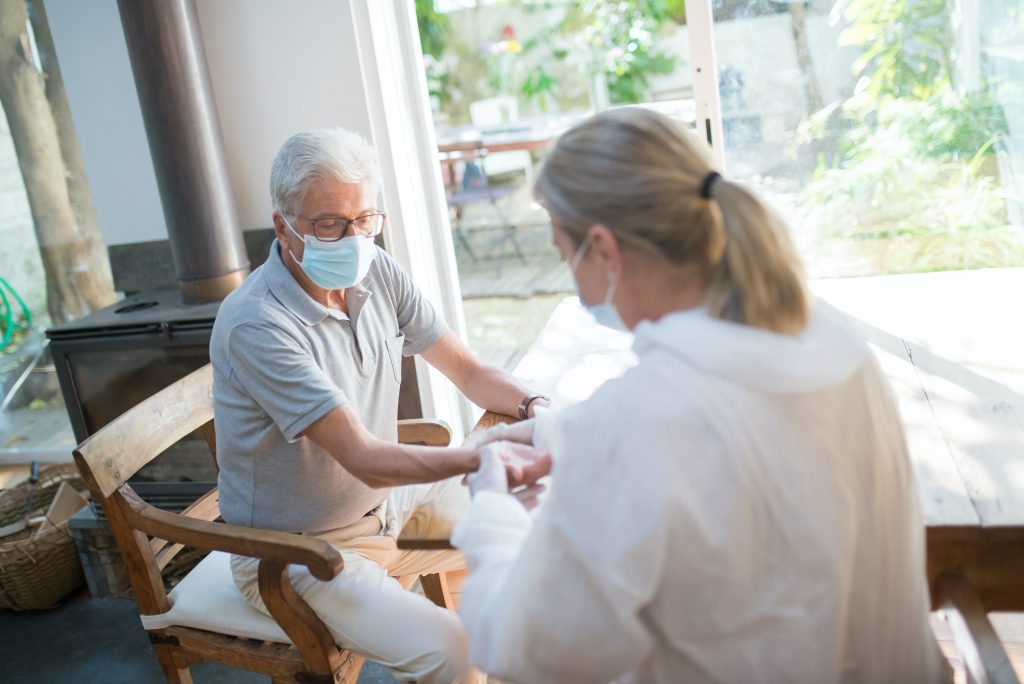As we age, managing our health becomes increasingly critical, especially for seniors. With aging, the likelihood of various health issues rises, and cancer is a prime concern. In fact, the American Cancer Society notes that 60% of cancer diagnoses occur in individuals aged 65 and above.
This highlights the crucial importance of cancer screenings for seniors in maintaining good health. In this piece, we will explore the importance of cancer screenings for the elderly and provide practical advice for navigating this essential health maintenance aspect.
The Importance of Cancer Screenings for Seniors
- Cancer screenings are a critical component of senior health, acting as an early warning system against the health challenges that come with aging. With a high incidence of cancer among individuals over 65, these screenings are key to early detection and timely intervention when treatments are most effective. Seniors are more susceptible to cancer due to age-related risks like smoking, poor diet, and environmental toxins, which make regular screenings an indispensable part of their healthcare routine.
The Impact of Early Detection
The significance of early detection through cancer screenings cannot be overemphasized. According to the American Cancer Society, timely screening can reduce death rates from breast, colon, and cervical cancers by up to 60%. Early detection facilitates quicker treatment, significantly improving outcomes and survival rates.
Recommended Screenings for Seniors
Cancer screening recommendations for seniors vary based on age, gender, and individual risk factors. Here’s a breakdown of suggested screenings for different types of cancers:
Breast Cancer
Breast cancer screenings have specific guidelines based on age and risk factors. Women aged 50-74 are advised to have mammograms every two years. Those with a family history or higher risk factors may need to start earlier or have more frequent screenings. Women over 75 should discuss with their healthcare providers to assess the benefits and risks of continuing mammograms.
Prostate Cancer
Prostate cancer screenings are recommended for men aged 50 and above. Having a thorough discussion with healthcare providers about the pros and cons of these screenings is crucial. Men with a family history of prostate cancer or other risk factors might need to start earlier or have more frequent screenings. It is also important for men over 75 to discuss the ongoing benefits and potential risks of continued screenings with their doctors.
Colon Cancer
Starting at age 50, both men and women should undergo colorectal cancer screenings. Options for these screenings include colonoscopies, sigmoidoscopies, or stool tests. Those with a family history or higher risk factors might need to begin earlier or have more frequent screenings for timely detection and treatment.
Lung Cancer
For seniors with a history of smoking, annual low-dose CT scans are advised for lung cancer screening. Conversely, non-smokers or individuals who quit smoking more than 15 years ago typically do not require these screenings, aligning with a personalized healthcare approach.
Cervical Cancer
Cervical cancer screenings involve Pap tests from age 21, to be repeated every three years until 65. Women over 65 with consistent, normal past results might discontinue these tests. However, those with a history of cervical cancer or high-risk factors may need to continue screenings to stay vigilant against possible threats.
Women with previous cervical cancer or elevated risk may need continued screenings beyond 65.
Additional Considerations
Apart from age and gender, factors such as personal and family medical histories, lifestyle choices, and ethnicity can influence screening recommendations. Engaging healthcare providers in these discussions helps create customized screening schedules that suit your specific health needs.
Conclusion
Cancer screenings for seniors are a proactive strategy, not a one-time fix. By following personalized guidelines and discussing individual risks with healthcare providers, seniors can ensure they receive the necessary screenings tailored to their age and health status. Early detection significantly increases the chances of successful treatment. Don’t wait – schedule your cancer screenings today for a healthier and safer future.
